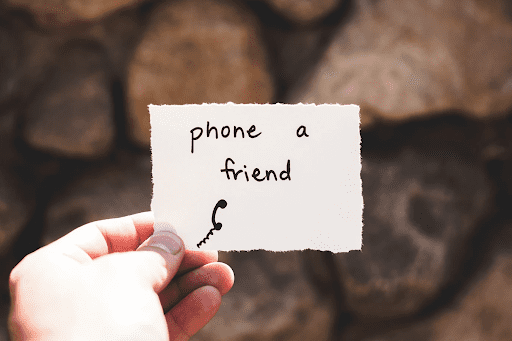National Suicide Prevention Week: Learning How (and Why) to Talk About Suicide
Talking about suicide is hard, and National Suicide Prevention Week is trying to change that. The country-wide awareness event, which is taking place this year between Sunday, September 8 and Saturday, September 14, is an opportunity to shine a light on a topic that is too often hidden in the dark, and to raise the collective consciousness over why suicide happens and how we can all do our part to help prevent it.
National Suicide Prevention Week takes place during National Suicide Prevention Month, and is centered around World Suicide Prevention Day on September 10. The goal is a simple one: raise awareness over the signs of suicide we should all be aware of and teach actions that can not just help prevent suicide but can also promote better mental health in general.
Suicide is the tenth leading cause of death in the United States, with nearly 45,000 Americans taking their lives every year. Estimates show that there is one suicide per every 25 suicide attempts, and that about 250,000 people a year become suicide survivors in the U.S. Elevating the conversation around suicide prevention is an essential part of reducing these sobering statistics and entering onto a path where more people who have suicidal thoughts and ideations get access to the support they need. And National Suicide Prevention Week is a huge step in that direction.
How to Talk About Suicide
One of the most important functions of suicide prevention programs is to teach people how to talk about suicide. Remember, suicide is a cry for help. Unlike depression, post traumatic stress disorder, and other mental illnesses that can lead to self harm, suicide itself is a behavior, and not a standalone illness. The better we can all learn to talk about it, the more effective support we can offer. Here’s how to do it.
Ask Questions. It’s not easy to ask someone if they are considering suicide, but if you are worried they are then the questions you ask (or don’t ask) could make the difference between them getting help or not. Be direct; ask “Are you thinking about killing yourself?” or “Have you been considering suicide?” Try to ask only “yes” or “no” questions, and be supportive, not accusatory.
Accept the Person’s Feelings & Experiences. Everyone’s feelings are valid, even if you can’t understand them or don’t agree with them. Be aware of your own part in the conversation, and take care not to put the person on the defensive or to discount their feelings or experiences in any way.
Show Your Support. The best thing you can do when someone is considering harming themselves is to be present for them. A large part of suicide awareness week is making the distinction between acknowledging someone’s suicidal thoughts and actively working to address them. Be actionable in your support, even if there is resistance.
Offer to Help Get Assistance. Depending on how critical you feel the situation is, you can either offer to help facilitate an appointment with a mental health professional (and even attend the session with them), or you can bring them to support services right away. If you’re not sure what to do, provide them with the National Suicide Prevention Lifeline (1-800-273-8255; available toll-free 24/7), and stick around for the call if they want you to.
How You Can Help
Be an ally in the fight against suicide. Here are seven ways to do it.
1. Learn about risk factors and triggers of suicide. This includes substance abuse and other self harm behaviors, prior suicide attempts, social isolation, and mood disorders.
2. Learn about the signs of suicide. Including anxiety, depression, and expressions of hopelessness.
3. Pay attention to suicide warning signs. Some of the big ones include talk of suicide and/or being a burden to others, giving away possessions and saying “goodbye,” and withdrawing from activities.
4. Know the resources. Keep on hand information for the National Suicide Prevention Lifeline (1-800-273-8255) and the Crisis Text Line (741741).
5. Talk about it. The more taboo suicide is to talk about, the less likely someone is to get help. Be willing to talk about it openly, honestly, and without judgement.
6. Spread the word. Share with others what you’ve learned about the signs of suicide and how to talk about it. You never know who will discover that a friend, family member, co-worker, or general acquaintance is having suicidal thoughts.
7. Take action. Make a donation to the American Foundation for Suicide Prevention, and consider attending an Out of Darkness Walk in your state.
Taking a Stand Against Suicide

Suicide may be difficult to talk about, but it’s something we need to talk about. There’s no better time than now to educate yourself on suicide awareness and to learn how you can encourage people to get the mental health that help they need.





